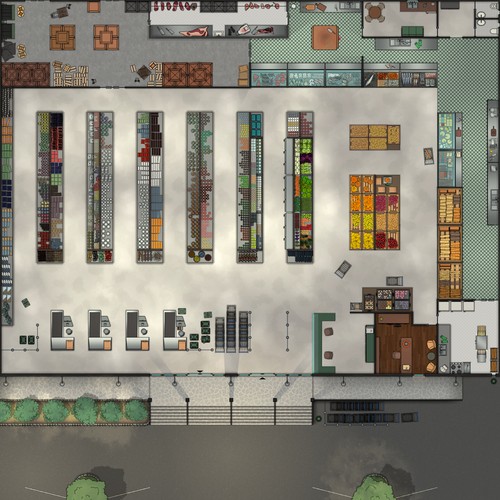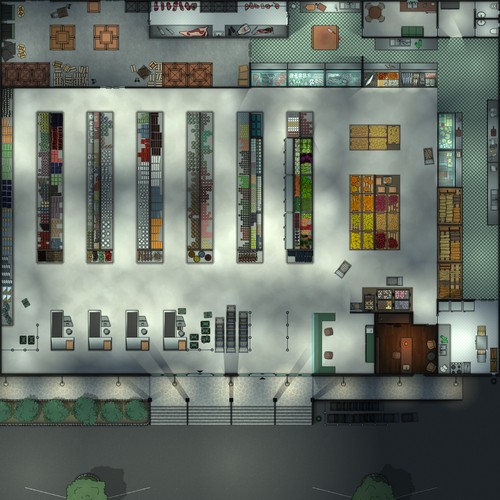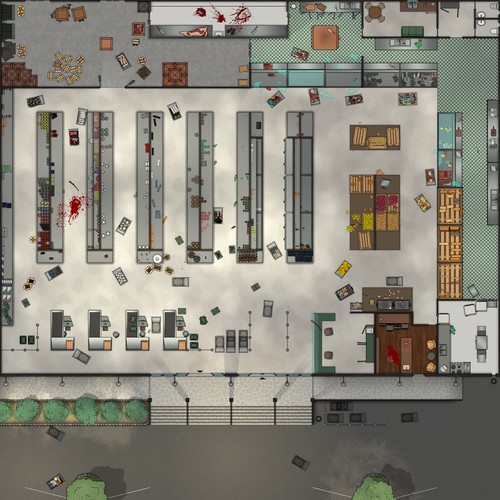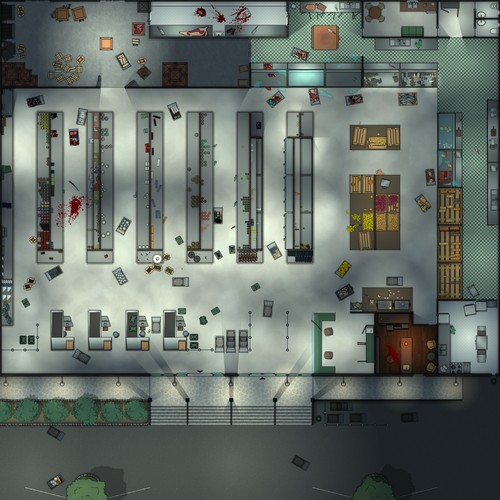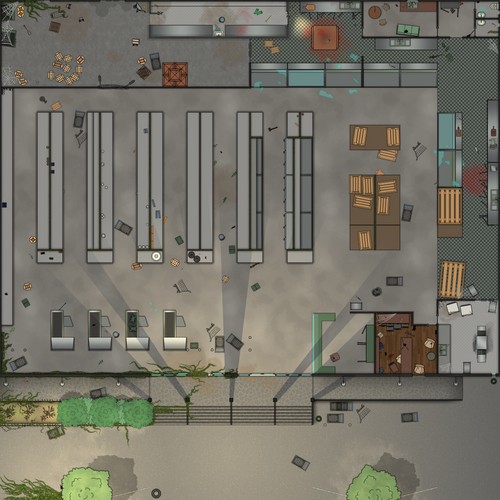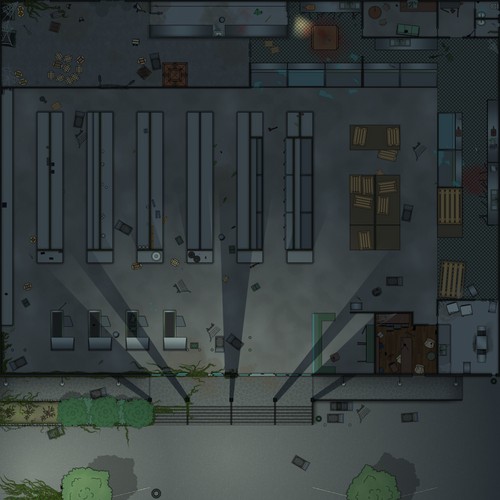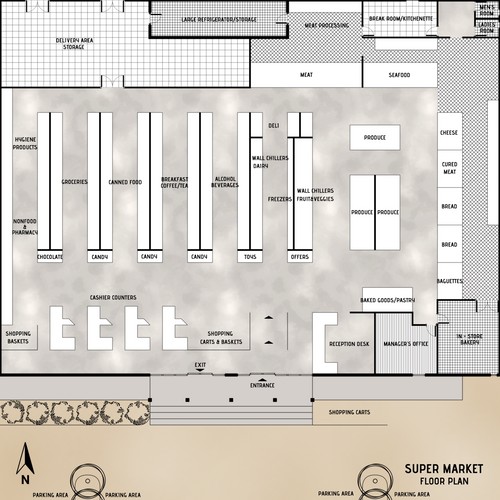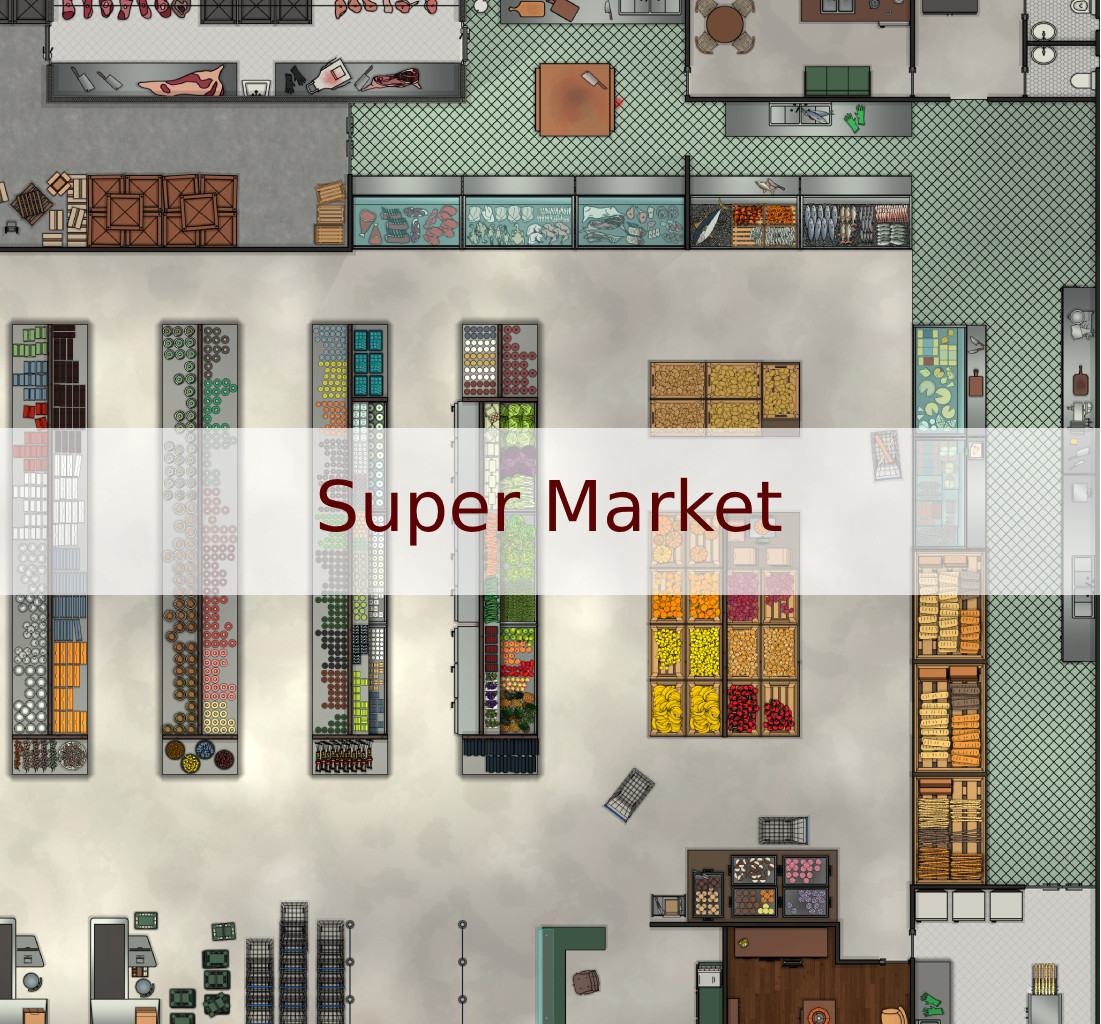Why does the produce section stock fruits that don't match any known varieties, and what's behind the manager's insistence on conducting inventory only after closing hours? Which aisles rearrange themselves overnight despite no visible restocking crew, and why do certain customers pay for groceries with currency that the cashiers accept without question? What's stored in that back warehouse section that requires deliveries through the loading dock at precisely 3 AM?
Follow Cthulhu Architect on BlueSky!A surprising percentage of your own society, with all your heritage of murder, would like to believe that Life survives by going to the supermarket. So the ideal would be to train cattle to make butcher knives and take turns cutting each other up at a convenient location.
― Spider Robinson, Callahan’s Crosstime Saloon
Rosalind Kerr first noticed something wrong when she realized she’d been shopping for three hours without filling her cart. The supermarket’s harsh lighting buzzed overhead as she wandered the endless aisles, each one seeming to stretch further than the last. Every time she reached for an item, her hand would pause, trembling, before selecting something else entirely.
The other shoppers moved with the same jerky hesitation, their faces blank as mannequins. A woman in aisle seven had been reaching for the same box of cereal for what felt like twenty minutes, her arm extended in a permanent arc of indecision. The checkout lines never seemed to move, customers swaying gently in place like wheat in an unfelt breeze.
Rosalind tried to leave, but the automatic doors wouldn’t respond to her approach. The security guard, whose name tag read “NOURISH,” smiled with too many teeth and guided her back toward the produce section. His fingers left small, wet impressions on her arm that wouldn’t wash off under the misting vegetables.
As closing time approached, Rosalind watched new shoppers arrive through doors that remained sealed shut for her. They walked past her as if she were invisible, their carts filling with purchases that writhed slightly when she wasn’t looking directly at them. The PA system crackled: “Clean up in aisle infinity. Clean up in aisle infinity.”
Days blurred into nights under the unchanging fluorescent sky. Rosalind’s reflection in the freezer glass grew paler, then translucent, then stopped appearing altogether. She understood now why the store needed so many customers---they were the real product, slowly dissolving into the corporate ecosystem, becoming part of the endless cycle of consumption that fed something vast and hungry hidden within the mundane machinery of commerce.
